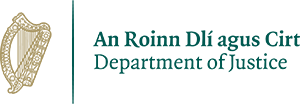In This Section
Introduction
If you are a family member(s) of an EU/EEA/Swiss citizen seeking to rely on Directive 2004/38/EC (Free Movement Directive) and are not the holder of a document called “Residence card of a family member of a Union citizen”, as referred to in Articles 5(2) and 10(1) of Directive 2004/38/EC on the rights of citizens of the Union and their family members to move and reside freely within the territory of Member States, you are a visa required national for Ireland.
Please read the visa type section below about the type of visa for which you may apply.
If you are the holder of a document called “Residence card of a family member of a Union citizen” as referred to in Articles 5(2) and 10(1) of Directive 2004/38/EC on the rights of citizens of the Union and their family members to move and reside freely within the territory of Member States, then you are not a visa required national for Ireland and can travel to the State without a visa, independently of whether your Union citizen family member accompanies or joins you in this State, for up to but not exceeding a period of 90 days.
Please note that the onus is on the holder of the “Residence card of a family member of a Union citizen” to provide this document to the appropriate authorities. Failure to provide the appropriate documentation may result in you being refused exit at the point of departure or entry to the State. Boarding of passengers is an operational matter for all carriers to determine whether or not to carry a passenger.
Visa type
You can apply for a single journey short-stay C visa which will permit you to enter and reside in the State for up to 3 months if you are a non-EEA national:
Stay more than 90 days
Please note, you cannot use a ‘residence card of a family member of a union citizen’ that has been issued by another member state to authorise your long-term stay in Ireland. Your residence card must be issued by the Irish authorities.
If you wish to remain in the State for more than 3 months as a family member of an EU citizen exercising their free movement rights, you must apply (when in the State) for a Residence Card of a family member of a Union citizen.
EU citizen exercising (or planning to exercise) free movement rights
If you wish to have your visa application considered under the Directive on the basis that you are a family member of an EU citizen exercising or planning to exercise free movement rights you must state this clearly on your visa application.
Joining an Irish citizen
Information is available for Irish citizens residing in Ireland who wish to have their family members join them.
How to apply
You must apply for a visa from your home country or a country where you are a legal resident.
When you have completed the online application process, you must follow the instructions on the summary application form that is created by the online system. You must print sign and date the summary form and submit it with your supporting documentation.
You must submit the summary form, which you should print, sign and date, with your supporting documentation. You may be required to provide your biometric information as part of the application process.
Fees
The visa fee for a short stay single entry visa is €60.
Qualifying family member
The list of ‘qualifying family members’ is as follows:
If you are a ‘qualifying family member’ of an EU/EEA /Swiss citizen you are exempt from the visa fee.
Permitted family member
If you are a family member other than a ‘qualifying family member’ you are required to pay the visa fee. Such family members are referred to in the relevant Irish statutory provisions as ‘permitted family members’. If you are required to pay the visa fee you may be able to pay the fee in local currency.
If the visa application from a ‘permitted family member’ is approved, the visa fee will be refunded.
You may be subject to additional charges relating to the submission of your documents. The website of the visa office, embassy or consulate will have details about additional charges and local payment options.
Visa Facilitation Services Global (VFS) Centre
If you attend a VFS Centre to lodge your application, a logistics or administrative fee may be applied by VFS. You are exempt from any other administrative fees relating to the processing of your visa application and may lodge your application in person at the relevant Irish embassy, consulate or visa office. Any postage or courier charges associated with the submission of your application are at your own expense.
How long will it take?
Applications from ‘qualifying family members’ are processed on an accelerated basis. While every effort is made to process these applications within a reasonable time frame, processing times will vary depending on the volume of applications, their complexity and the resources available.
Applications from ‘permitted family members’ are not subject to the accelerated process. While every effort is made to process them within a reasonable time frame, the processing times can increase when the provision of additional documentation is requested or a detailed assessment is required.
Supporting documentation
In order for you to establish that you are a ‘qualifying family member’ or a ‘permitted family member’ you must prove:
The following forms of proof may be required:
If you submit a document that is not in English or Irish, it must be accompanied by a full translation. Each translated document must contain:
Any State issued official documents, such as Birth Certificates, Marriage Certificates, Death Certificates, Divorce Certificates that were issued by a State outside of the EEA or Switzerland, must be attested/apostilled as genuine by the Ministry of Foreign Affairs in the State that issued the document, in order that it can be accepted as evidence for Irish visa purposes. Such documents are required to be translated into English or Irish, if necessary. Translations done outside the EEA or Switzerland must also be attested/apostilled as genuine, by the Ministry of Foreign Affairs in the country in which the translation occurs. Send us both the original documents and the certified translations. Translations done in the EEA or Switzerland do not need to be attested by the Ministry of Foreign Affairs.
Any State issued official documents, such as Birth Certificates, Marriage Certificates, Death Certificates, Divorce Certificates that were issued by a State within the EEA or Switzerland do not require to be attested as genuine from Member States. A translation of these documents is not required where a multilingual standard form (MSF) is also provided. Such MSF forms are available from Member States on request. If an MSF is not provided by you then those documents are required to be translated into English or Irish, if necessary in order that it can be accepted as evidence for Irish visa purposes. Translations done outside the EEA or Switzerland must also be attested/apostilled as genuine, by the Ministry of Foreign Affairs in the country in which the translation occurs. Translations done in the EEA or Switzerland do not need to be attested by the Ministry of Foreign Affairs. We will also accept the Extract of a European marriage certificate, issued in accordance with the “Convention on the issue of multilingual extracts from civil status records“, as proof of a marriage within the EEA or Switzerland. Send us both the original documents and the certified translations.
Visa applications on behalf of a child (person under 18)
If a child under the age of 18 is travelling alone their birth certificate must be submitted with their application. If a child under the age of 18 is travelling either alone or with a person other than their parent or legal guardian (for example an adult relative), a written letter of consent from both parents or legal guardians is required. These signed consents must be accompanied by copies of the consenting parent or legal guardians’ passports or national identity cards, which clearly show their signatures.
If the child is travelling with one parent or legal guardian, the consent of the other parent or legal guardian is required. This signed consent must be accompanied by a copy of the consenting parent or legal guardian’s passport or national identity card which clearly shows their signature. Where one parent has sole custody, a Court Order bestowing sole custody of the child on the parent concerned must be submitted.
Visa approval
If your visa application is approved you will be issued with a single journey short stay ‘C’ visa which will permit you to enter and reside in the State for up to 3 months.
Port of Entry
If you are granted a short stay ‘C’ visa on the basis of the Directive and are joining an EU/EEA/Swiss citizen who is exercising free movement rights in the State, then you should have proof of the EU/EEA/Swiss citizen’s residence in the State to show at the port of entry. Failure to provide such proof may result in you being refused entry to the State and a visa warning being entered on your passport.
Accompanied by the EU/EEA/Swiss citizen
If you are granted a short stay ‘C’ visa on the basis of the Directive and accompanying an EU/EEA/Swiss citizen who intends to exercise free movement rights in the State you must, on arrival in the State, be accompanied by the EU/EEA/Swiss citizen. Failure to be accompanied by the EU/EEA/Swiss citizen may result in you being refused entry to the State and a visa warning being entered on your passport. Find out more what you have to do after you arrive.
Return of documents
All documents accompanying your application must be originals. You should keep copies of all the documents that you provide. Original documents such as marriage, birth or death certificates will be returned to you. However, other documents such as bank statements or letters of invitation will not be returned. If there are particular documents that you wish to have returned, please provide a list of these documents with the application.

